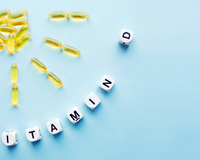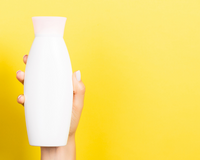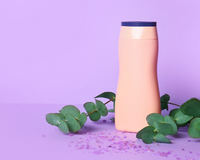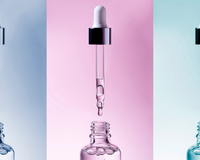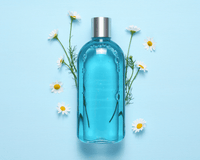It is an indispensable component of Retinol anti aging products. Retinol cream and serum products make important contributions during intensive skin care. As a prescription drug in skin diseases in pure form, retinol itself creates a versatile field of application. In this sense, you can think of retinol vitamin and care supplement as a pharmacy product.
Retinol Anti Aging
Naturally occurring Retinol (vitamin A derivative) may also be found in the skin. Retinol is one of the most popular anti-aging skin care chemicals on the market today. You can see the effects of cell penetration. As the skin's collagen and elastin synthesis increases, retinol formulas assist to minimize the symptoms of aging by combating collagen breakdown. Fine lines and deep wrinkles are visibly reduced. As a result, the skin seems smoother and healthier. This product helps to reduce the look of crow's feet and dark circles under the eyes. UV-induced dark patches are visibly reduced.
Skin aging is a result of both internal and extrinsic causes. It is impossible to modify internal elements, which are genetically designed to cause premature aging. Factors that harm the skin from the outside are known as external factors. However, extrinsic influences have a greater impact on the skin's structure and function. In addition to environmental causes such as UV exposure and air pollution, stress and tiredness increase cellular death in skin cells. In addition to premature skin aging, cellular damage is one of the leading causes of skin aging. As a result, wrinkles, black patches, and a loss of skin firmness become evident.
What Makes Retinol Anti Aging Products Different?
After being exposed to the sun, Retinol degrades fast and is very sensitive when it comes in contact with the oxygen. Retinol has been stabilized for the first time, allowing it to better penetrate the skin. However, the unique proprietary chemical DMC increases its effectiveness (Dihydroxmethylychromone). DMC is a professionally established anti-aging and anti-irritant component that enhances retinol's activity.
What Does Retinol Anti Aging Do?
In cosmetic dermatology, these molecules, with their serum and cream forms in varied structures and concentrations, have a broad position with their capsule and cream forms that may be used with a prescription in the treatment of many skin disorders. As a result of its antioxidant and collagen production-enhancing properties, it is widely used in the elimination of wrinkles, the treatment of aging and sunspots, the acceleration of skin regeneration owing to its vitality and suppleness, as well as the treatment of oily skin and acne.
Considerations When Using Retinol
Despite its importance as a skin-care component, it may not suit all skins. Due to their mode of action, retinoic acids exfoliate the skin, which increases sensitivity in the process. Such exfoliating acids may not tolerate by hypersensitive skin. UV radiation reduces the efficacy of these products and should not use during the daytime. An SPF of at least 30 should wear during the day.
How to Use Retinol?
You may apply retinol with your fingertips to the cleansed and dried skin on your face and neck, or you can combine it with a daily skin care cream to cover the entire face and neck. Avoid contact with the eyes. Other acid-containing products should not use with this product.
As tolerance develops, the dosage should rise. There are a number of calming and moisturizing creams that may use simultaneously to decrease irritation on the skin. After three months, the efficacy of retinol-containing treatments becomes more apparent. When taken for extended periods of time (6-12 months), it can help promote collagen synthesis and reduce fine wrinkles.
Sensitivity increases as well as redness, itching, and burning. As long as the issue isn't too bad, moisturizing and calming lotions can help. After a certain period of time, the usage of Retinol should reduce or stop. Cleaning and moisturizing products for sensitive skin might utilize in this procedure. During pregnancy and nursing, it should not use at any time.
At What Age Should You Start Using Retinol?
That's where knowing your rationale for using it comes into play. For example, is it to reduce the apparent symptoms of aging on your skin, or to take early action against wrinkles and loss of firmness that will develop in later years? With aging, cell renewal and collagen synthesis begin to slow down. A person's age-related symptoms vary depending on genetic and environmental variables, as well as their lifestyle. As a preventative measure, it suggests that you begin taking retinol in your late 20s or early 30s.
What Are the Side Effects of Retinol?
It is typical for the skin to feel tight, sensitive, and a little peeling in the first few weeks of using retinol, and these side effects can persist for up to six weeks! It's best to avoid retinol for a few weeks if your skin displays extreme responses such as flaking and strong irritation, as well as redness and persistent burning feeling. Fortunately, owing to their slow-release formulations, the new generation of care products, which redesign using the newest technology, better accepted by the skin. To reduce adverse effects, skin-soothing chemicals include in the mix.
Retinol might cause skin irritation if it utilizes properly. Be sure to include moisturizing products with ceramides, which rebuild the skin barrier, and hyaluronic acid, which helps to retain moisture.
How to Choose a Care Product Containing Retinol?
You may choose the best product for you based on your skin type, skin problem, and whether or not you've ever taken retinol previously, among other factors. For dry skin, creams and gels are ideal, while lotions and serums are best for normal and mixed skin. Derived from serum, the active ingredient penetrates deeper into the skin and more rapidly. Serums are a good choice if you want a product with a powerful composition but a light structure. If you have sensitive skin, you can combine it with regular moisturizer and apply it.
Select products with a low concentration of retinol if you are using it for the first time. After a few weeks of using retinol, you may wish to switch to higher-concentration formulations. Pay close attention to the product's packaging as well. For this reason, do not store it in transparent bottles or jars as the retinol loses its potency when exposed to air or light The most optimal packaging would be opaque containers with an airtight pump mechanism, or goods in tube or capsule form.


